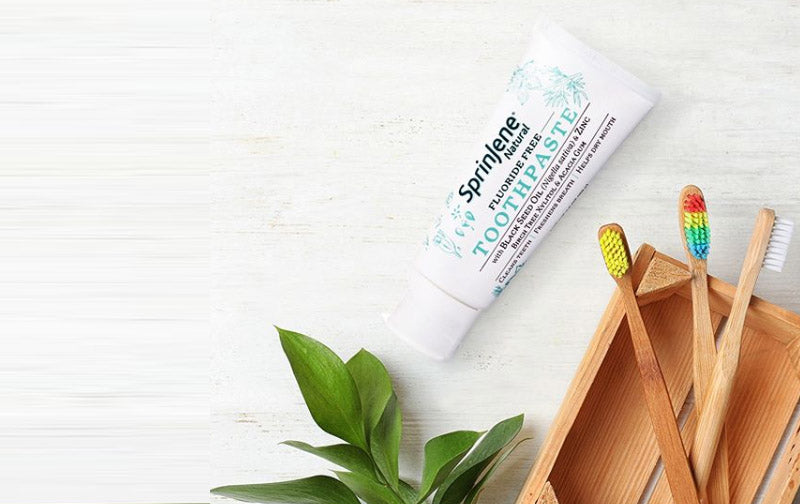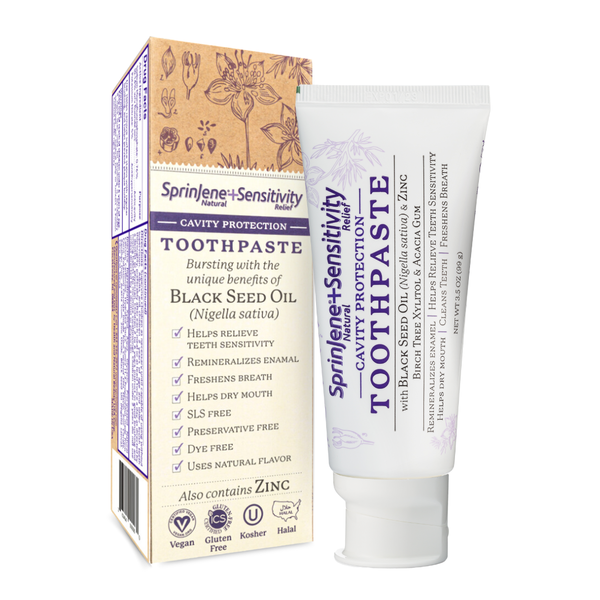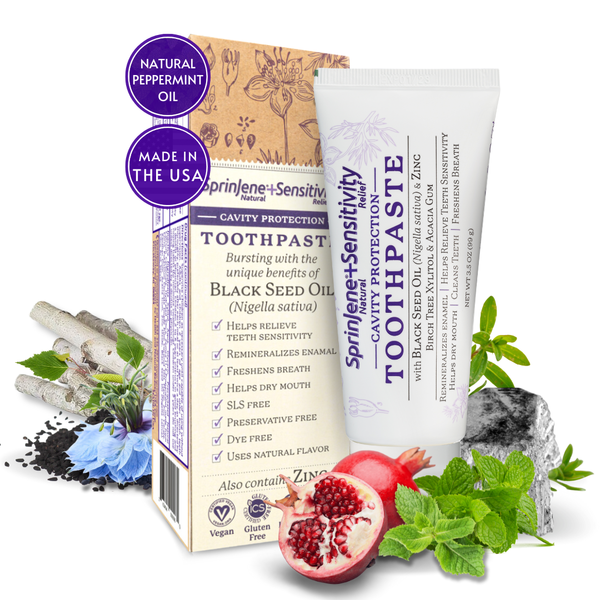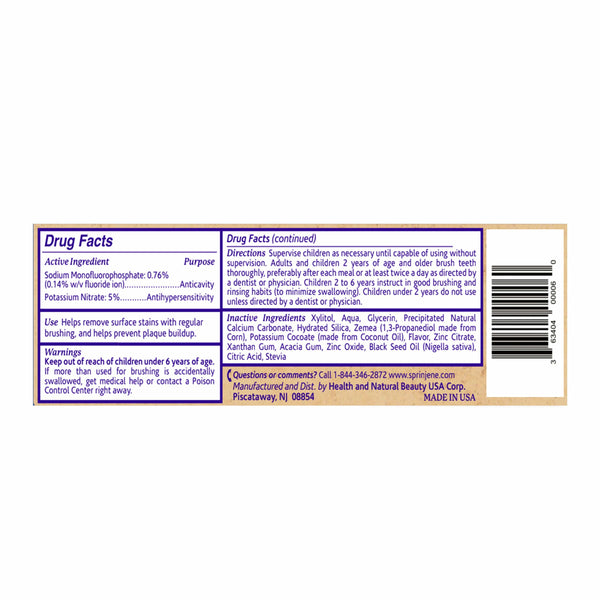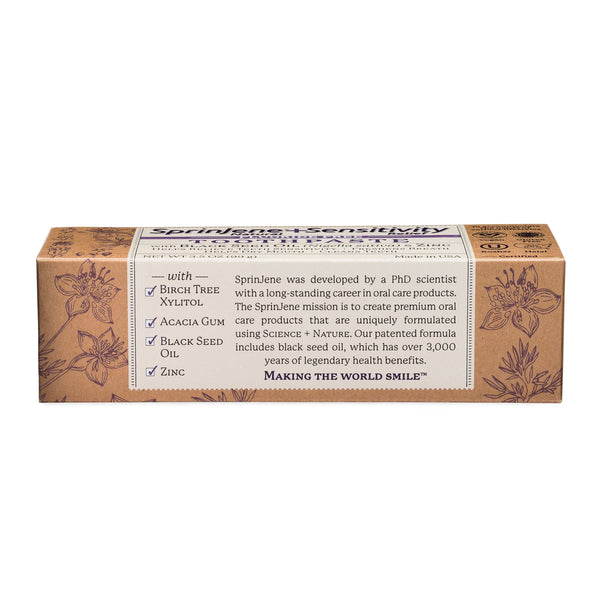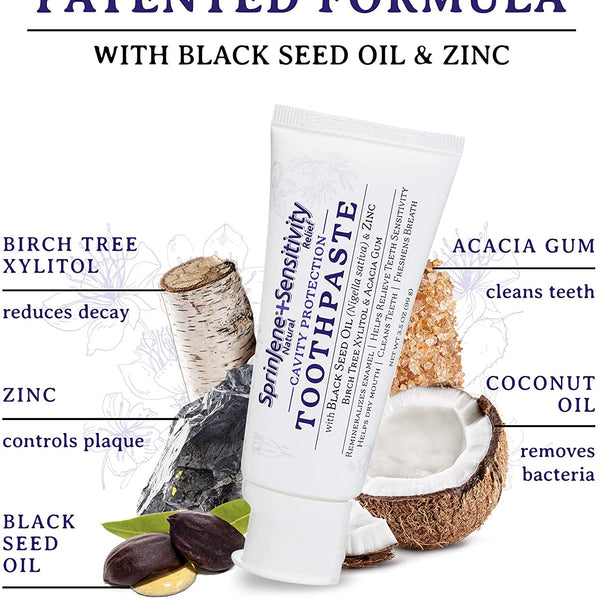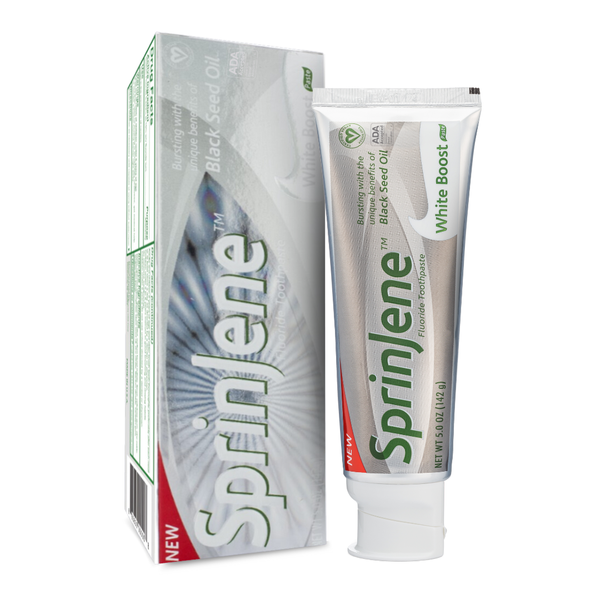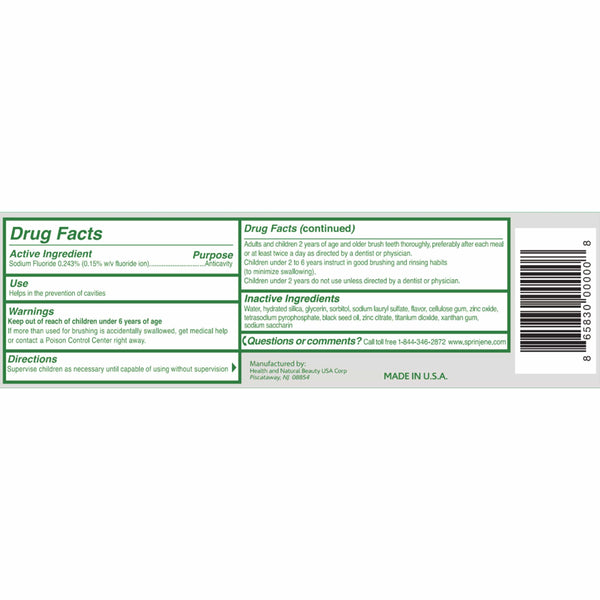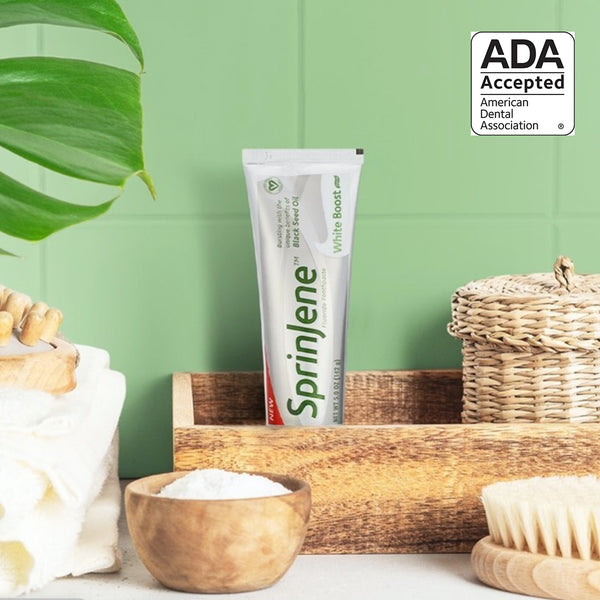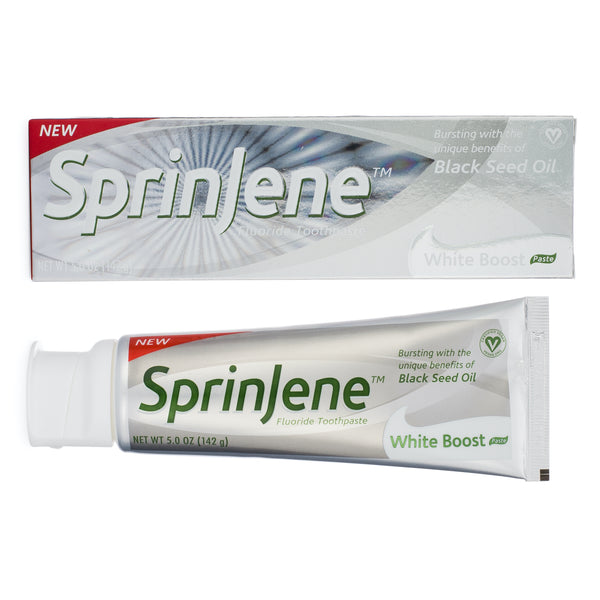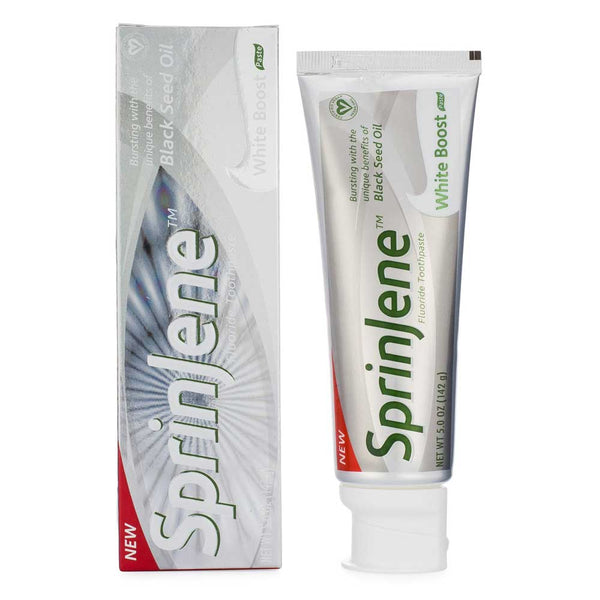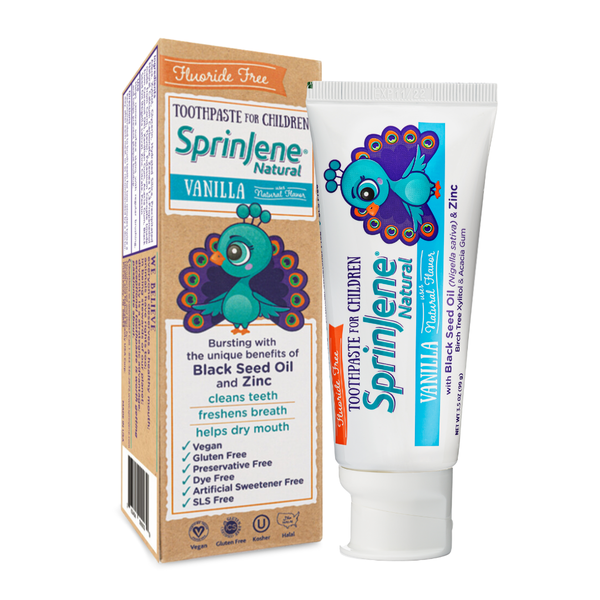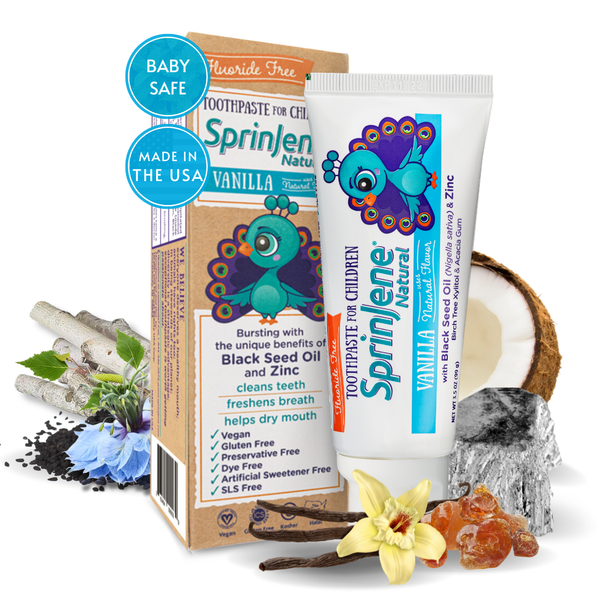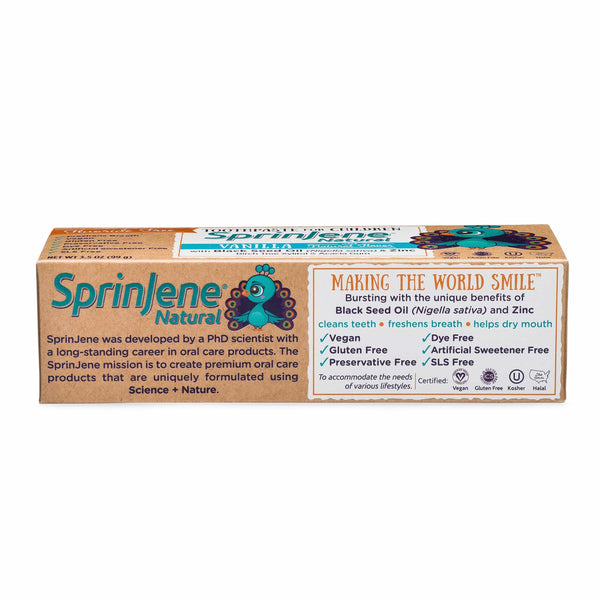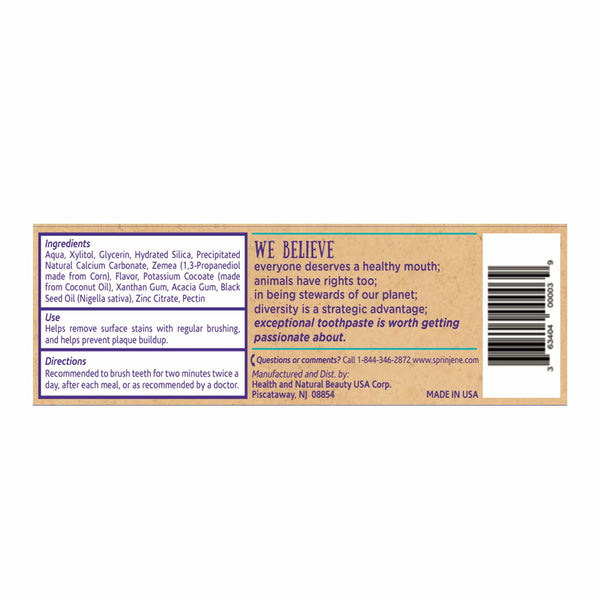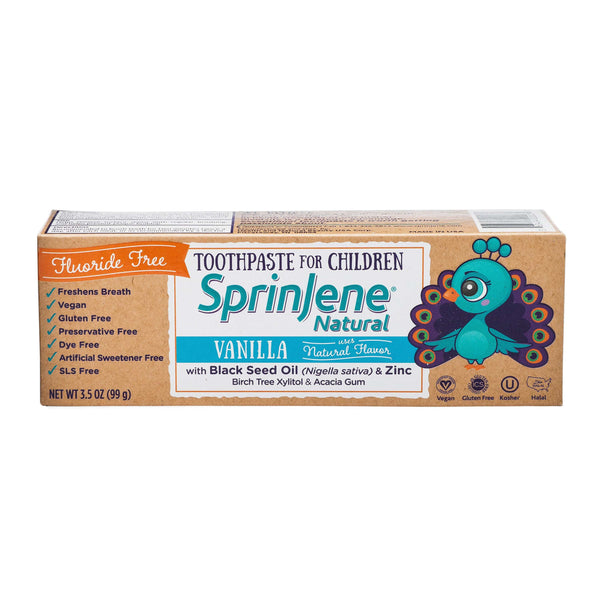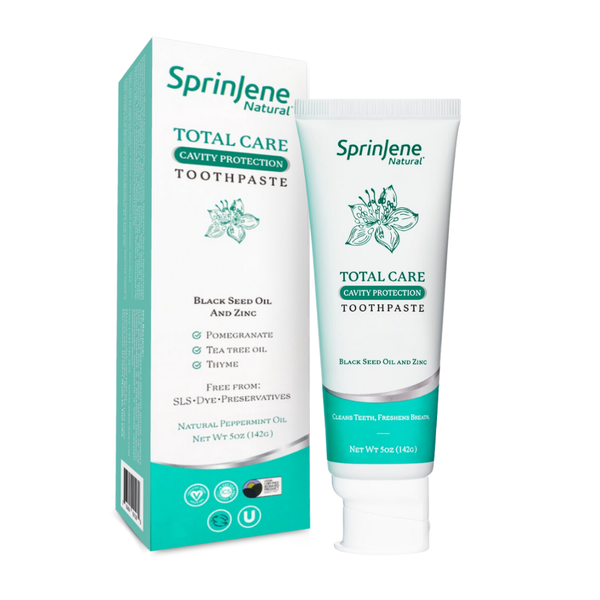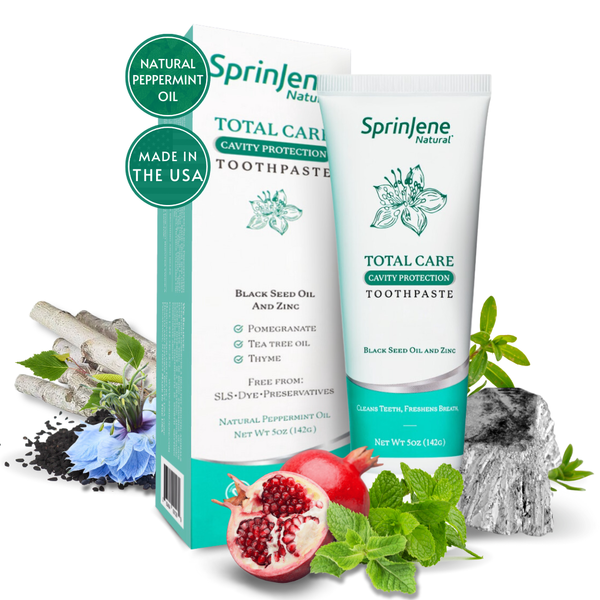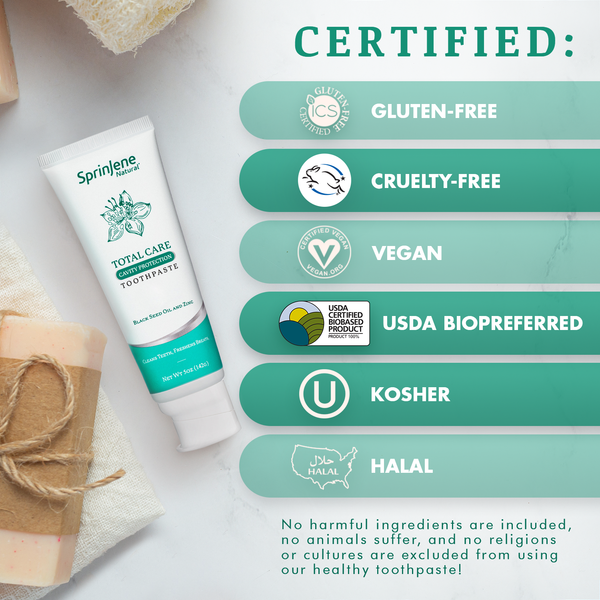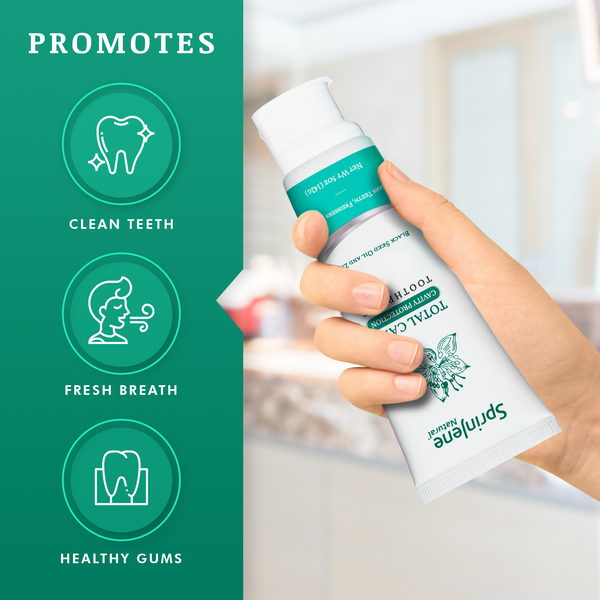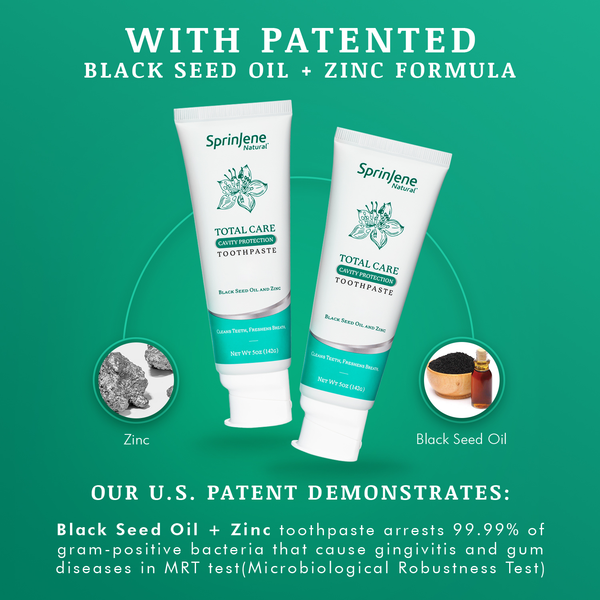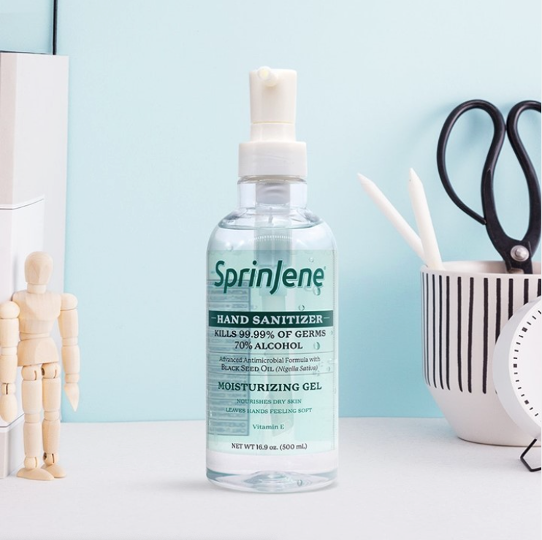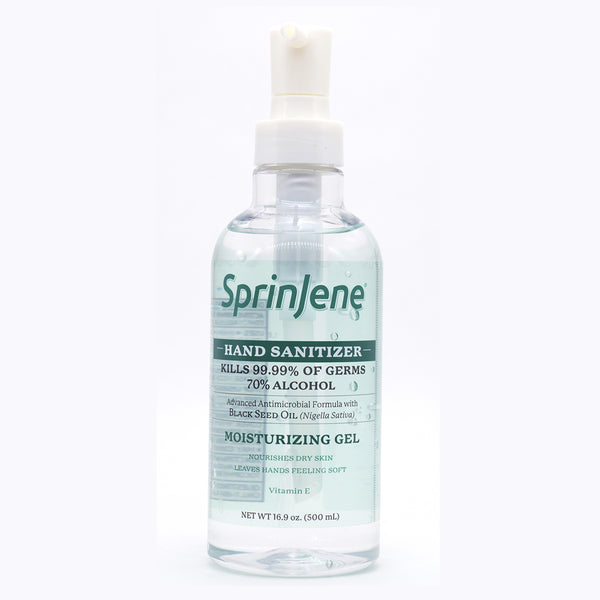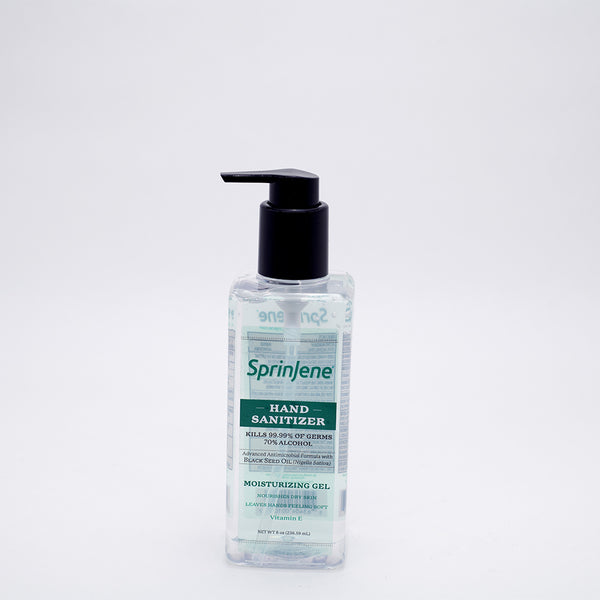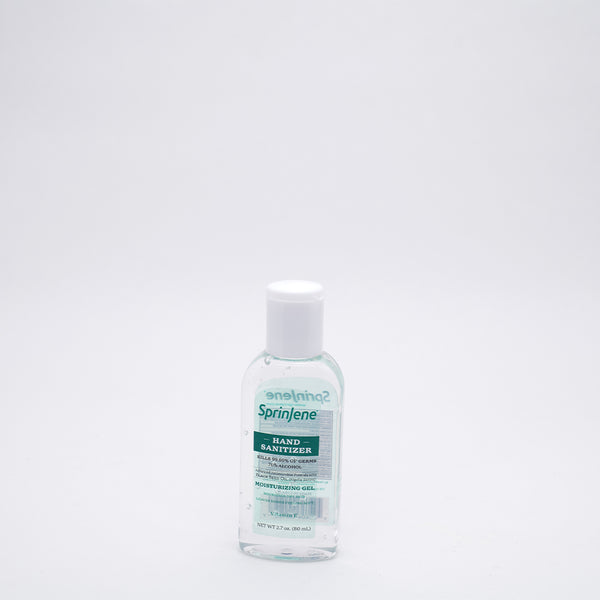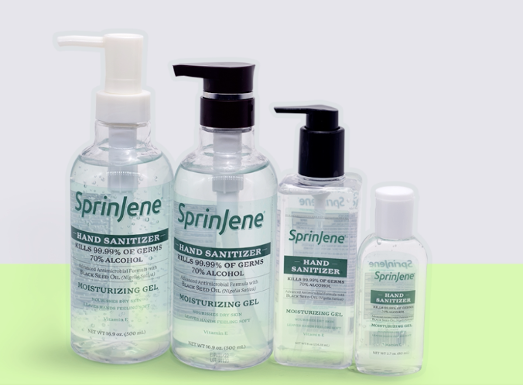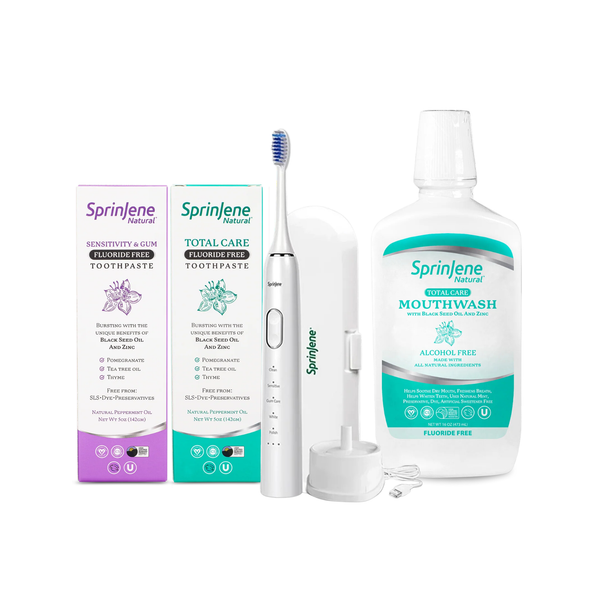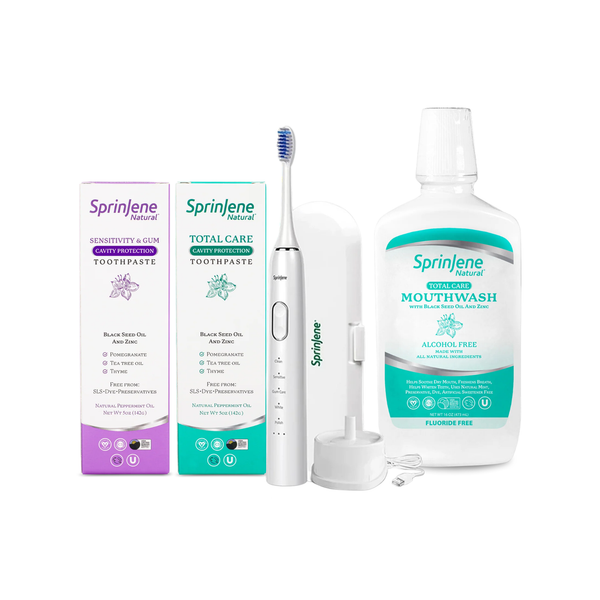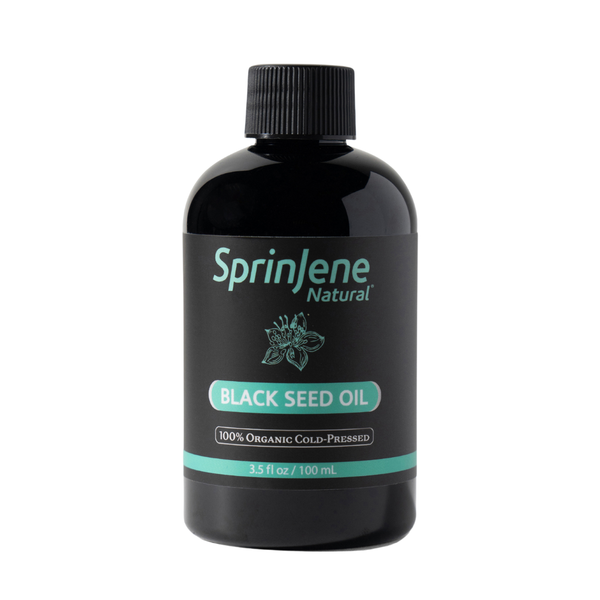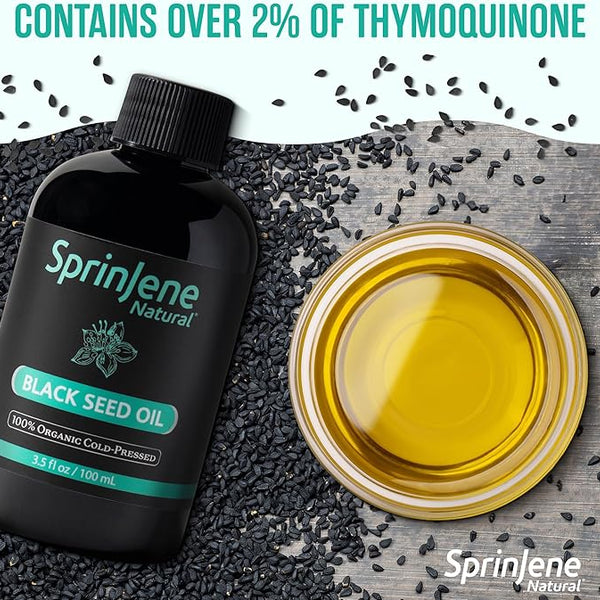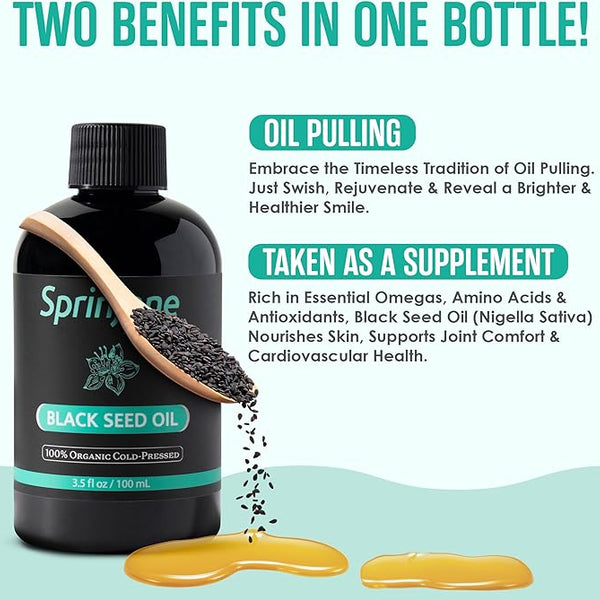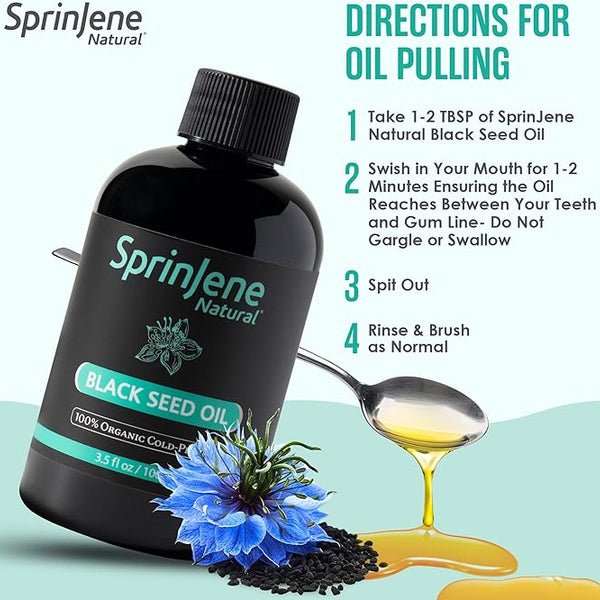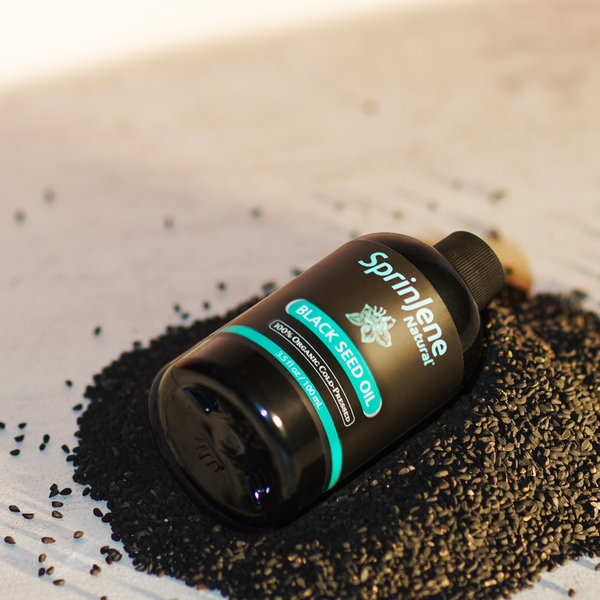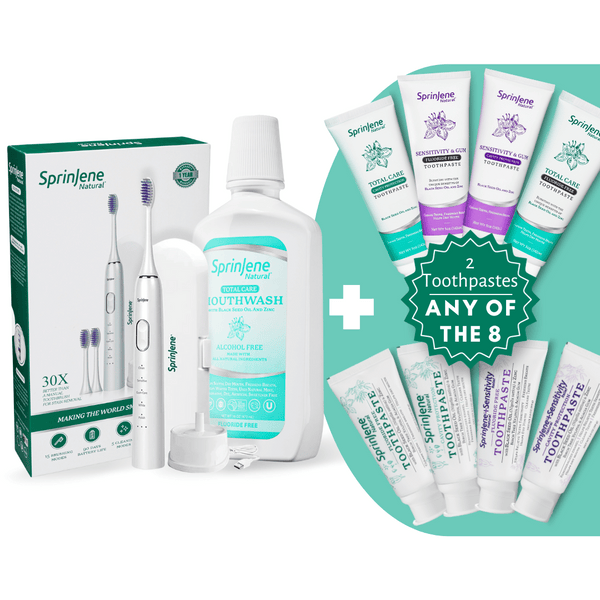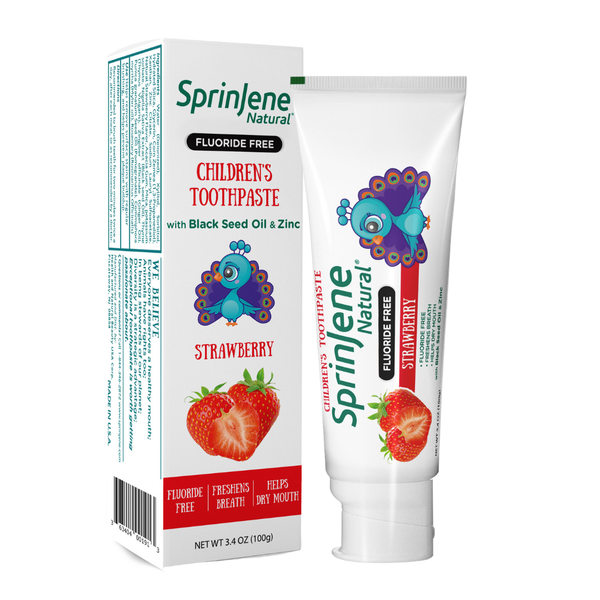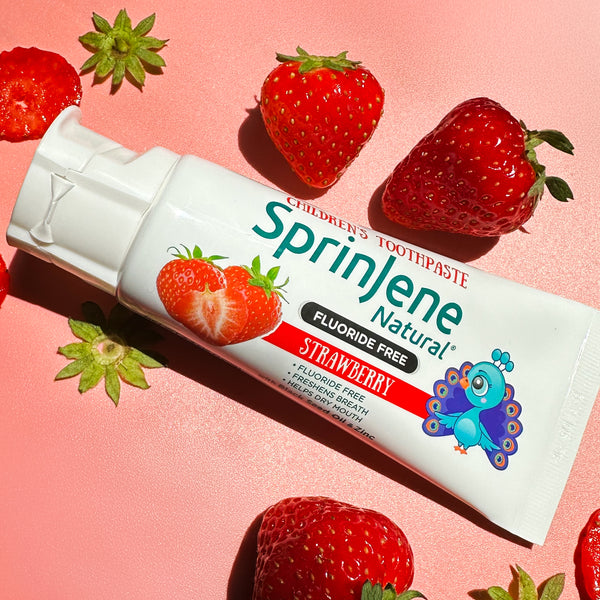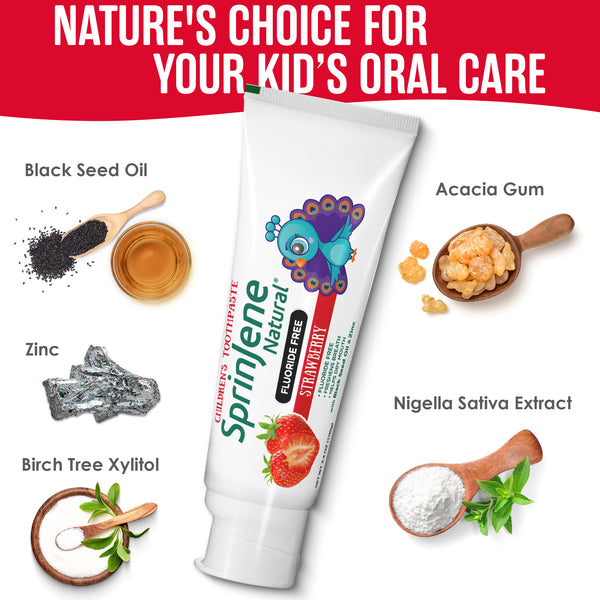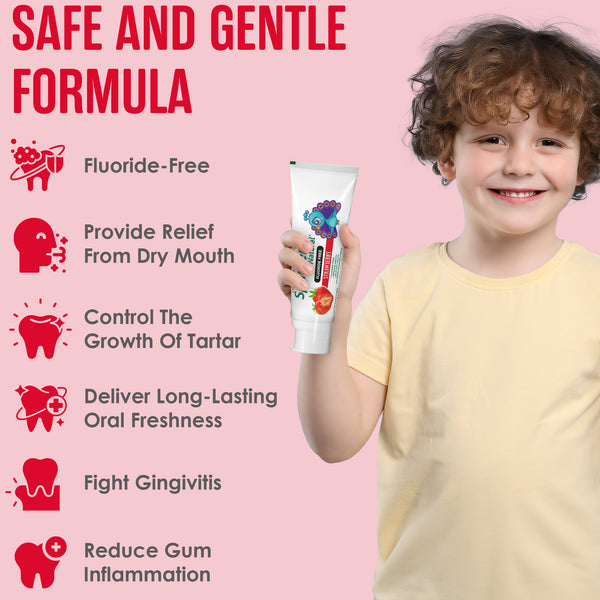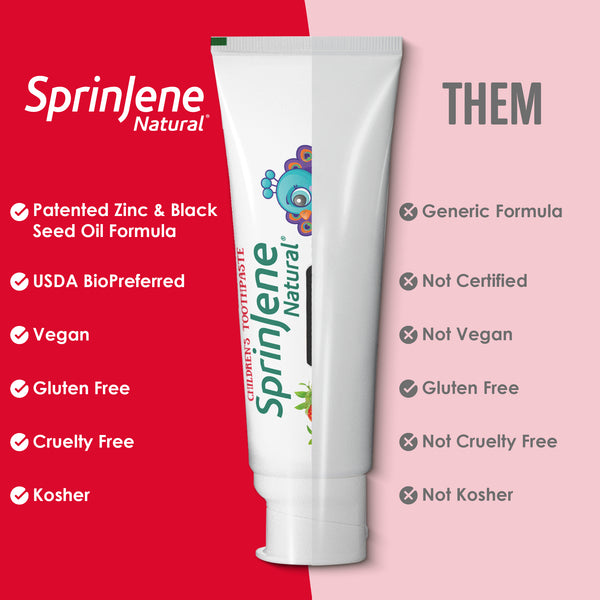
Brushing your teeth is essential to our hygiene and it’s important to be aware of the toothpaste you are using. Have you ever notice tears forming in your eyes while brushing and/or staying away from cold drinks directly after? Most of us have! This could be because of gum sensitivity or a lack of vitamin C. Not only that, but it could also be from the harshness of your toothpaste.
Your toothpaste is supposed to be abrasive, and with abrasive we mean by aiding the mechanical action of your toothbrush in removing dental plaque and stains. The outermost part of your teeth is called the enamel. It’s the strongest substance in the human body, but an excessively harsh toothpaste can cause it to wear away. Unfortunately, enamel does not grow back when it is gone.
The wear and tear of the enamel exposes the dentin to hot and cold temperatures. This is the cause of teeth sensitivity, as we know it. The next time you feel pain when you brush, or possibly when you eat hot or cold food, you should probably change your toothpaste. Perhaps, a natural toothpaste instead!
Don’t get us wrong, toothpaste abrasiveness is still important but to a smaller extent. Its job is to scrub away plague and tartar, but the trick lies in the toothpaste being coarse enough to make brushing easier. The whole point is to not be harsh enough to wear out the enamel. This is a huge reason why people prefer a natural toothpaste over the others.
Abrasiveness is a very important factor in toothpaste, and as such, it is regulated. Every toothpaste has a Relative Dentin Abrasion (RDA) value. The lower the value, the less abrasive the toothpaste is.
The American Dental Association (ADA) recommends toothpaste with RDA values of 250 and lower. Basically, 250 is the mark. If you are below that number you have the green-light, but above it is a straight no-no.
Toothpaste that focuses on whitening and tartar control usually have higher RDA values. Although the harsher ones clock in at about 160, you can see there is quite some distance between that and the 250 limit.
The difference is all in the ingredients. Most kinds of toothpaste use abrasives like sodium bicarbonate, also known as baking soda, for tartar control. Here at Sprinjene, we believe in silica and zinc! They are more gentle and do not break down into peroxides that wear away enamel. Our silica formula cleans tissues effectively yet gently, removing stains and debris to leave you with a mouth full of freshness and free from dirt.
In our fluoride free toothpaste, we use Xylitol. It’s a non-fermentable sugar alcohol, which creates a protective layer around the teeth that prevents plaque in place of fluoride. You wouldn’t need much abrasion when there is no plaque to begin with.
However, excessive intake of fluoride leads to dental fluorosis, and this causes white spots on the surface of the teeth. Another bonus for the kids is that Xylitol is a sweetener – just because it’s healthy, does not mean it can’t be tasty too!
That about concludes all you need to know when it comes to abrasive toothpaste. Now you are able to make the right choice of which toothpaste to use!
If you’re still unsure or have any questions, feel free to contact us directly. We are here to help!
You can check out our website and look through all of the varieties of toothpaste that we offer. We are certain you will find one that is perfect for your teeth and personal needs. We have vegan toothpaste, vanilla flavored toothpaste for the kids, gluten-free, Halal, Kosher toothpaste for the religious, and lots more. We’re just one click away!

